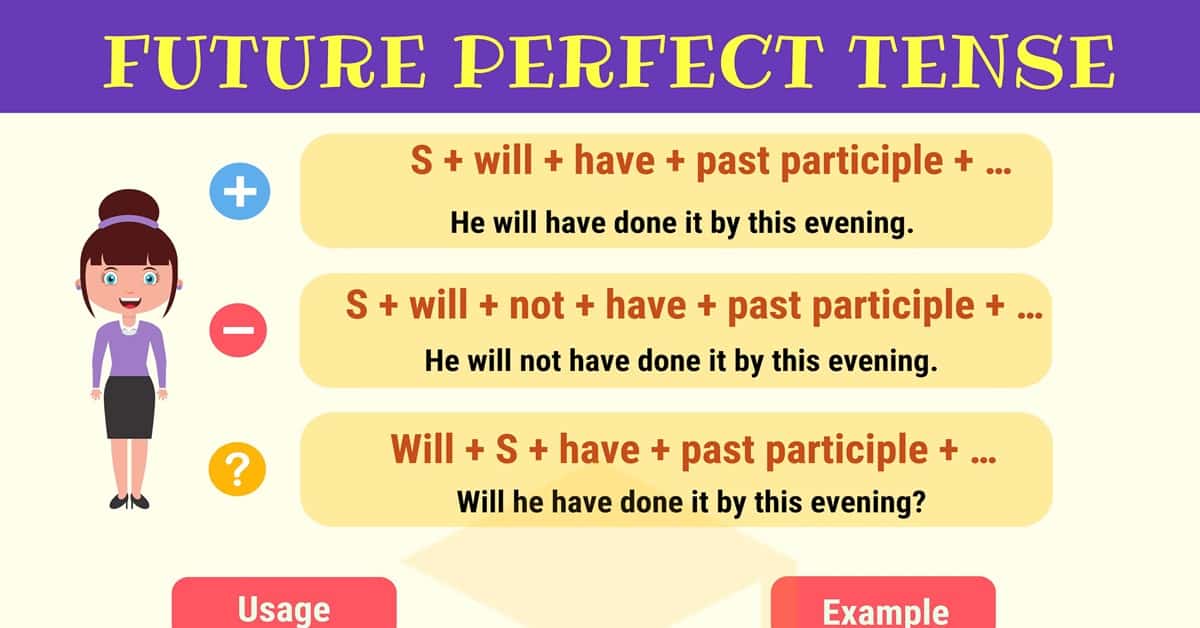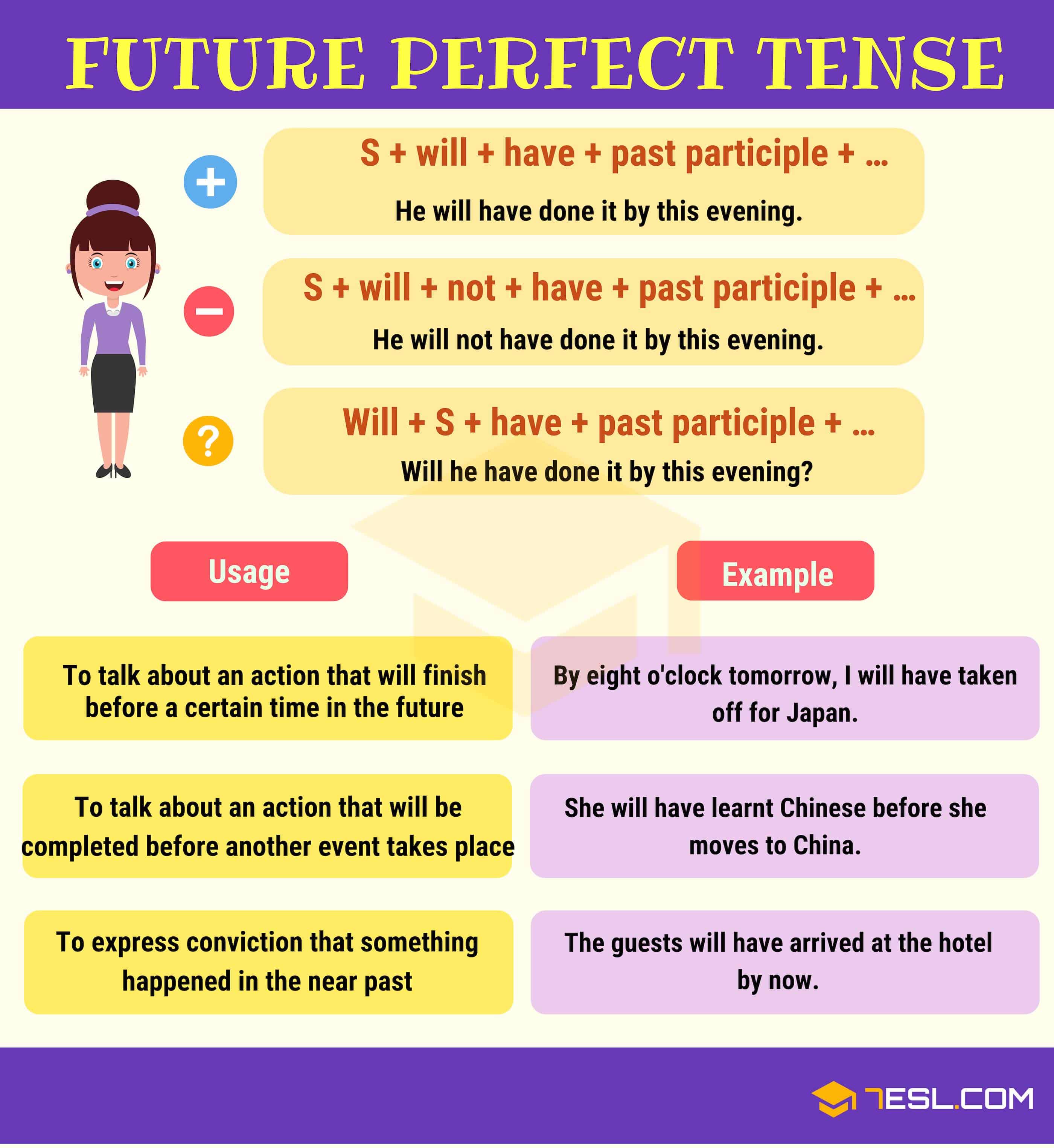Future Perfect Tense! In this section, we are going to be looking at how to use the future perfect tense as well as a selection examples to give you a better understanding of how it functions. This will give you the opportunity to speak about and write about events in the future in much more detail.
Future Perfect Tense
When you want to talk about an action that will happen before a certain point in the future, you will need to use the future perfect tense. There are certain rules surrounding the use of the future perfect tense and it is important that you follow these rules in order to create a grammatically correct sentence.
The future perfect is a verb form or construction used to describe an event that is expected or planned to happen before a time of reference in the future.
In English, the future perfect construction consists of the auxiliary verb “will” (shall) to mark the future, the auxiliary verb “have” to mark the perfect, and the past participle of the main verb.
Positive Sentence:
S + will + have + past participle + …
Example:
- I will have finished my report by the end of this month.
Negative Sentence:
S + will + not + have + past participle + …
Example:
- He will not have done it by this evening.
Question form:
Will + S + have + past participle + …
Example:
- Will you have written me a letter?
How to Use the Future Perfect Tense
Learn how and when to use the Future Perfect Tense in English with grammar rules, example sentences and ESL printable worksheets.
The Future Perfect is used:
– To talk about an action that will finish before a certain time in the future
Example:
- By eight o’clock tomorrow, I will have taken off for Japan.
– To talk about an action that will be completed before another event takes place
Example:
- She will have learnt Chinese before she moves to China.
– To express conviction that something happened in the near past
Example:
- The guests will have arrived at the hotel by now. (I’m sure the guests have arrived at the hotel.)
Time Expressions Used with Future Perfect Tense
- By + …
- By the time
- Before
- Until/till
- By then
- By the end of + …
- By tomorrow









0 Comments